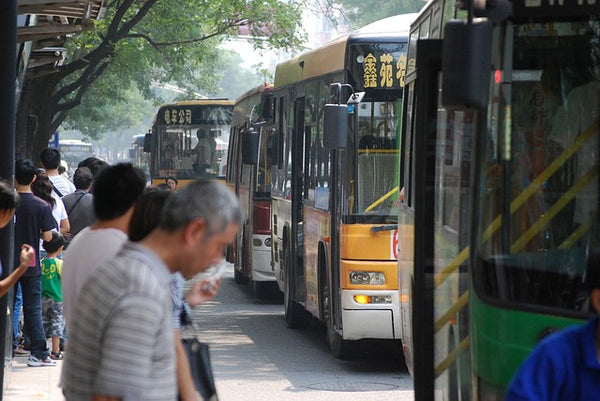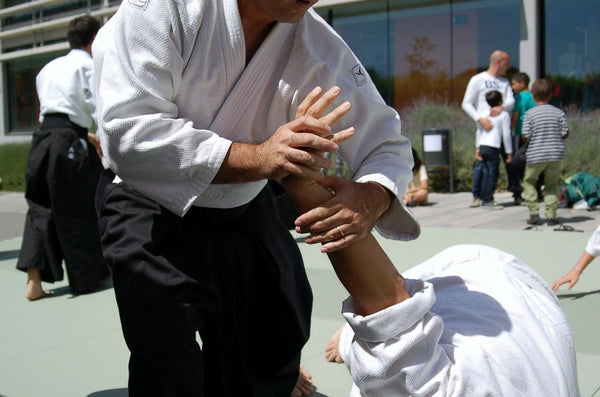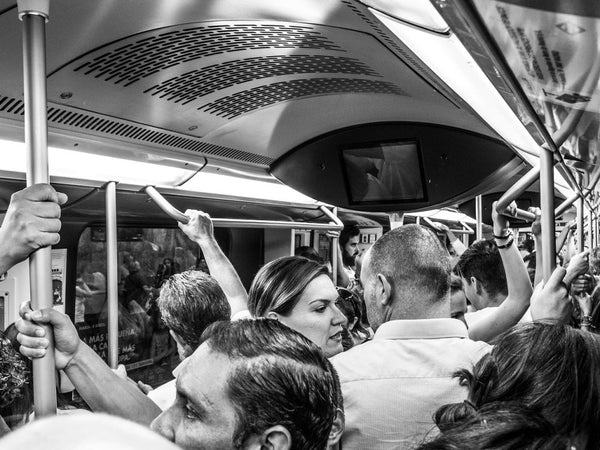How to Travel Safe When Using Ground Transportation – Part 1

The last thing you may be thinking about when you are relaxing on vacation is your travel safety. Those moments when you are distracted searching for a bus stop or trying to hail a cab are the moments you are most vulnerable. In part 1 of this 3 part series, you’ll learn what to be aware of when taking ground transportation as well as what you can do if someone is hassling you.
It Can Happen to Anyone
You’re pickpocketed as you nap on a bus headed for Buffalo. Your assailant gets away with your ID, credit cards, and cash. This causes problems for years, as you try to clear your good name.
Waiting for the train in London, you absorb yourself in texting. Your phone attracts the attention of a thief, who promptly grabs the $700 phone right out of your hand.
Even the best-planned travel is random chaos. When it comes to crime, although you can’t control when a wave might come at you out of nowhere, you can learn to surf it. Below we discuss crimes and other dangers you might encounter in using ground transportation and how to minimize your risk.
The Nature of Ground Transit Invites Crime
Ground transit keeps you temporarily stranded from the outside world. This inability to summon help immediately tends to enable crime and other abuse. Behaviors on public transport range from theft, verbal abuse, aggressive staring and offensive gestures to being photographed against one’s will, groping, flashing, lewd comments, rape, threats against the driver, and other disturbing behaviors. These behaviors can happen on the way to the bus shelter, at the bus shelter, and in and around transit facilities.
Certain Destinations are More Dangerous
Traveling overseas to certain destinations puts women and men at risk. Travelers who venture to parts of South America and the Middle East must be astute at handling their fears and projecting confidence through their body language. Generally avoid buses outside of North America, Europe, and Australia.

Generally, avoid buses outside of North America, Europe, and Australia.
Research before any international trip to find out if any safety bulletins have been issued in the country you plan to visit. The U.S. State Department website posts travel warnings for specific countries, along with details. American travelers can also register with U.S. consulates and embassies in the nations they plan to visit.
Behind that Smiling Face…
Real-life predators are not Michael Myers or Hannibal Lecter. Criminals could be anyone: they hide in plain sight and try to look like everyone else. In choosing their targets, criminals seek out a power differential—often their decision is based purely on the physical power and the body mass of their target.
Mental Strategies Can be Powerful
To bypass the power differential, take martial arts classes. Maybe you can’t beat up anything larger than a stuffed animal right now; with commitment, speed, timing, agility, and body mechanics, even a smaller person can learn tactics that, if done right, make body mass and size a bit less relevant.
You’ll also learn mental strategies that could save your life. In fact, mental strategies of being aware of your surroundings and trusting your intuition may be more important than physical strategies, which you would only use in the worst-case scenario—when you can’t get away from an assailant. Avoiding, deterring, and de-escalating situations are far better than sticking around for a fight. Most important is to learn to be assertive.

Learn martial arts.
Assertive Scripts You Can Use When Being Harassed
Learn as much as you can about assertiveness—and then practice on people in your own life.
You may be tempted to ignore bad behaviors, but you do have dignified options beyond that. You can set limits with harassers. In fact, your harasser could have darker intentions and might be testing your boundaries. If you react swiftly and assert yourself, he’ll probably decide to move on.
Most of the following scripts are intended for situations of sexual harassment.
- Name the behavior and say that it is wrong. For instance: “You can’t touch me! You can’t just grab someone’s butt. That’s not okay!”
- Tell them what you want from them. You might say, “Get away from me!” “Stop putting your hand up my skirt,” or “Stop trying to grab my purse.”
- Make it personal. Ask them, “Would you want your mother or sister to be treated the way you’re treating me?” Personalizing a bad behavior might make a harasser stop and think. It won’t work on offenders who aren’t in their right mind or on those who know better but don’t care.
- Make a general statement about harassment. Say, “Stop harassing me. I don’t like it. Show some respect.” Say it in a serious tone.
- Call out the offender, which is especially helpful if bystanders are near. You could say, “Guy in the blue suit, stop rubbing against me.” Announce it to the whole train or bus, and the harasser will hopefully be humiliated enough to get out at the next stop.
- Call out the behavior. Don’t call names. Say “You’re sitting too close to me” rather than saying “What a sick pervert you are.”
- Take a cell phone picture of the offender or thief. It can throw him off balance. Criminals are used to employing the element of surprise; do something unexpected and turn the tables on them.
- If you’re getting panhandled, create a bit of cognitive dissonance. Say “no” with a cheerful tone in your voice. It might throw the person off.

Call them out.
Part 2 of this series will cover how to stay safe when traveling by bus, cab or train .
Written by Katie Anton
Need Help?
customercare@tarriss.com

